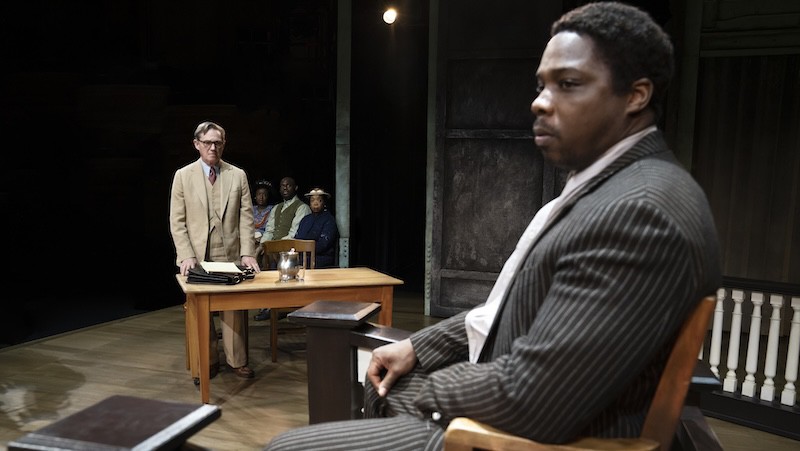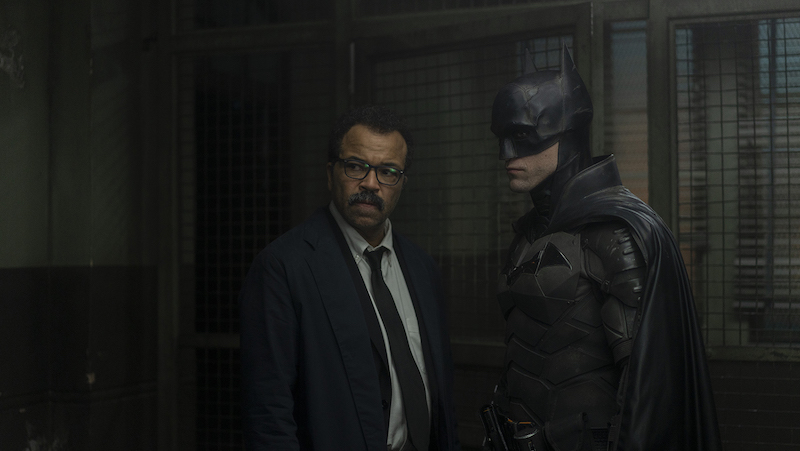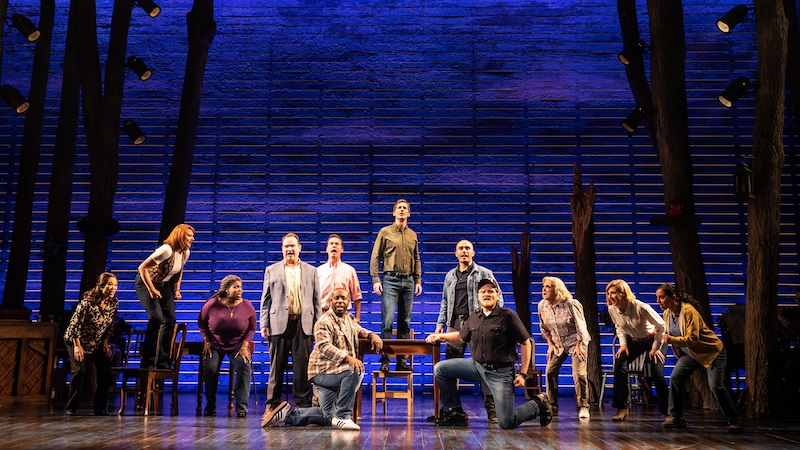‘To Kill a Mockingbird’ Comes to Richmond
A new take on the classic novel and movie

“To Kill a Mockingbird” played to a packed audience in Altria Theater, Richmond, Virginia, for opening night on Feb. 27, 2024. The beloved and sometimes controversial story centers on lawyer Atticus Finch and his family and of his defense of a Black man accused of rape in a small Alabama town in the 1930s. Richard Thomas, an actor who has a kinship with Virginia, plays Atticus Finch in the traveling production. Both entertaining and moving, the play addresses rich themes such as social inequality, good and evil, and prejudice.
Harper Lee’s 1960 “To Kill a Mockingbird” book was based on an event and people in Lee’s Alabama hometown. A movie version starring Gregory Peck soon followed (1963). This play, adapted for the stage by Aaron Sorkin, creator of “The West Wing” and writer of “A Few Good Men” and “The Social Network,” opened on Broadway in 2018. The touring production came to Virginia as part of the Broadway in Richmond series.
The ‘Mockingbird’ story in its newest version
An adaptation inevitably varies from its predecessors, challenging the new writer to honor the original while working within the medium and the context of the time.
In Aaron Sorkin’s adaption, the three kids – Scout and Jem Finch and their friend, Dill Harris – are played by young adults. “I think that decision was made because it allows the show to be a memory play of sorts,” says Steven Lee Johnson, who plays Dill. “You’ll notice that sometimes when the kids are narrating they’ll be talking in the present tense, and then sometimes they’ll be talking in the past tense. It allows the theatrical device of it not just being the immediate moment but also what existed within the memory and the imagination of Scout and the children.”
In his adaptation, Sorkin strove to make the play more relevant for today. Racial issues still simmer, seasoned by an increased level of awareness.
“He gives the Black characters more agency – they have choice,” says Yaegel T. Welch, who plays Tom Robinson, the accused. “As opposed to being assigned a lawyer, Tom actually chooses. Calpurnia has a much more personal and connected relationship with Atticus, which lends itself to being a voice of reason that he can latch onto. … You get a little glimpse of how [the Black characters] might really be feeling in a way that the novel and movie don’t.”
Thomas echoes an appreciation for the revised characters of Calpurnia and Robinson. “We’ve got magnificent actors in those parts, but [Aaron has] placed the relationship with Calpurnia at the center of the play … she has so much wisdom to share, but she’s never preachy. She’s just talking about her feelings and her experience.”
The play also presents a more flawed Atticus Finch. Sorkin has “taken him off the pedestal,” explains Richard Thomas. “He’s taken his idealism and made it somewhat naïve. I like to say he’s sort of interrogated all of Atticus’s unassailable virtues – most importantly his feeling of community, that everybody is essentially good, and that everyone in the community is good. He has to learn, no, you have to pick your own community of people. … He’s made him a man who has a lot to learn … and who is, I would say, teachable.”
Atticus tells his children, “There’s goodness in everyone – you just have to care enough to look for it.” But Thomas says, “That is a lovely way to look at the world and worth striving for, but in fact not everybody is doing the same good. Are we doing good or are we doing horrible, horrible things? It’s great to learn the difference.”
On a lighter side, Thomas says of Sorkin’s Atticus, “He’s given him a great sense of humor, which is probably for me the most delicious part of it all. It’s a serious story, but it’s also a funny story and a heartwarming story, and he managed to balance all of those elements over the course of the play.
While the story has been adapted to the stage, most audience members will find that their perceptions have changed, too.
I much younger when I first read “To Kill a Mockingbird” and when I saw the movie, but I’ve also gained a clearer picture of reality in the intervening years. While a more naïve me would’ve wanted a different outcome for the Tom Robinson’s trial, I know now, that’s the way it would have been, so that’s the way it must be in the play.
Similarly, Aaron Sorkin has changed up the number of bullets used against Tom Robinson in the referenced escape attempt. Welch explains, “When we first did this play on Broadway, [Sorkin] had Tom being shot five times, because the book said 17 times, and he said ‘that’s extreme, that’s [the author] being hyperbolic.’ But then George Floyd happened, and he said, ‘no they shot him 17 times’ and added it back in … ‘no, this is not over the top, … this is something that likely would have happened.”
Other cast highlights
Actor Richard Thomas brings a sense of kinship to Virginians who remember his portrayal of John Boy Walton in “The Waltons” (1972-1981). The TV series was created by Virginia author Earl Hamner Jr. (1923-2016) and based on his family in Nelson County. Thomas is certainly a skilled actor, but those who knew him from “The Waltons” can easily see John Boy growing up to become Atticus Finch.
Earl Hamner Jr. would probably have approved, too.
“I’m sure he would have loved what Aaron did. Earl created a wonderfully warmhearted, sweet show and he was a wonderful man, a kind, dear, good man, but he had a wonderfully edgy, naughty sense of humor. He wasn’t a marshmallow, by any means, and I think he would really have responded to the biting quality of the script, the humor and the edginess of it, and the difficulties. And I think he would have been happy to see me in the part. It’s a good part for me.”
When you see the play, pay special attention to these cast members, too:
Mary Badham plays the angry Mrs. Henry Dubose. Badham played Scout in the Gregory Peck movie and earned an Oscar nomination for her performance. Since then, she has promoted the story’s message about social injustice across the U.S. “She’s our cherry on top,” says Thomas. “It’s wonderful to have her with us to pass on the torch.”
Steven Lee Johnson seemed to be a natural for the part of Dill – and, indeed he was. Johnson can relate to “basically everything” about Dill – “the precocious kid, can’t wait to be an adult, the same way huge imagination. … I’ve kind of reconnected to this part of myself, which I think so many of us leave behind and think isn’t there anymore but it is.”
Jacqueline Williams in the role of Calpurnia initially seems caring but brooding. The scene with Atticus trying to draw out the reasons for Calpurnia’s emotional distance offers a touch of humor, but she also illustrates the concept that still waters run deep. I for one was waiting to hear what lay beneath the ripples
And that’s where another story is waiting to be told. The book, the 1963 movie, and the Broadway adaptation are all told from the white point of view. “Our playwright Aaron Sorkin said that is another play … what’s happening on the other side. You never see two black characters alone talking, so you don’t necessarily you get their story. You get the representation that we had to show to survive Jim Crow.”
Aaron Sorkin, you probably know you can’t tell that story. But perhaps you could engage some Black writers who can. Please, and thank you!
“To Kill a Mockingbird,” part of Broadway in Richmond, played Feb. 27 to March 3, 2024, at Altria Theater, Richmond
Follow the national tour for a performance near you.
From Struggle to Triumph: A Reflection on African American Achievements


